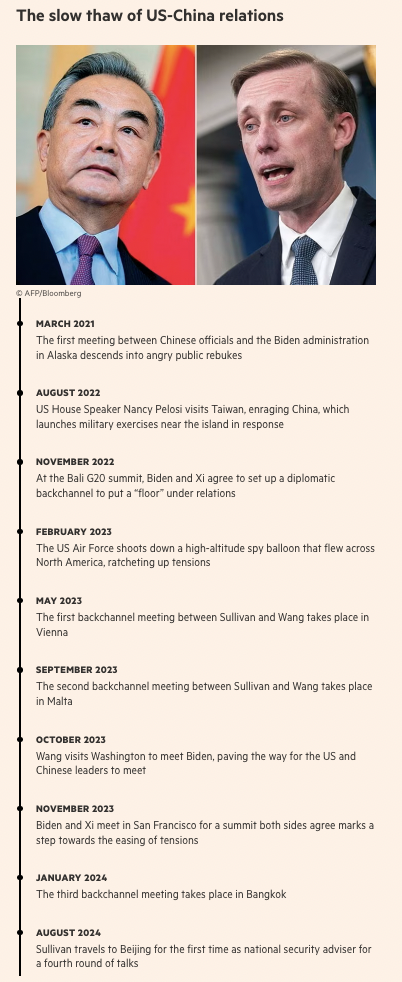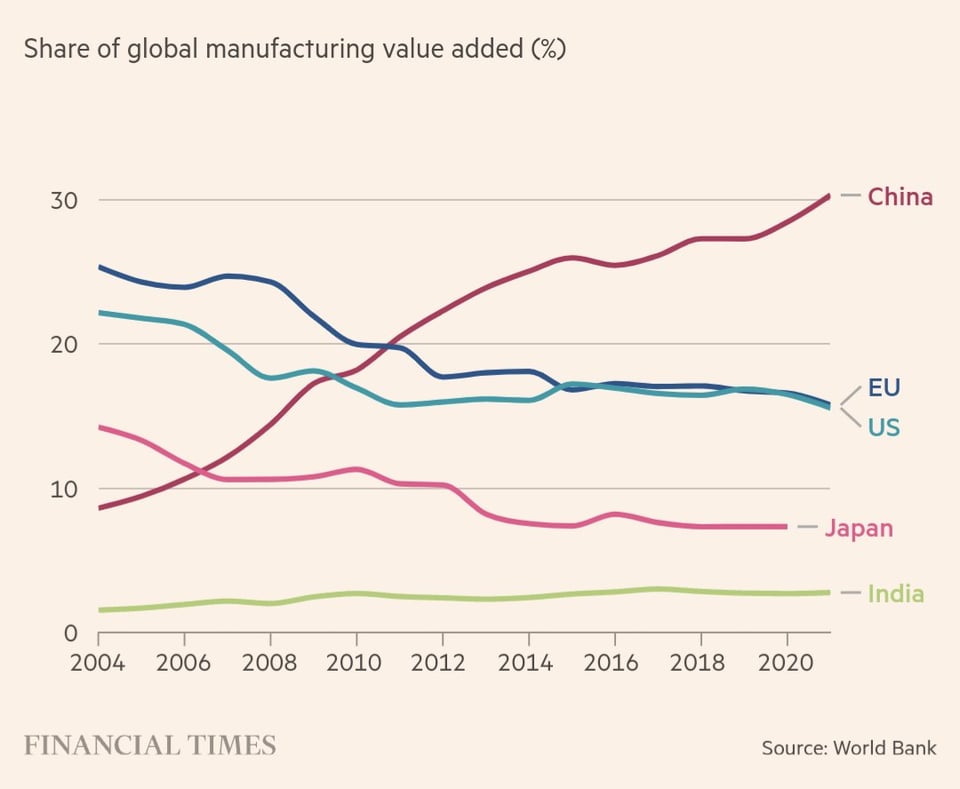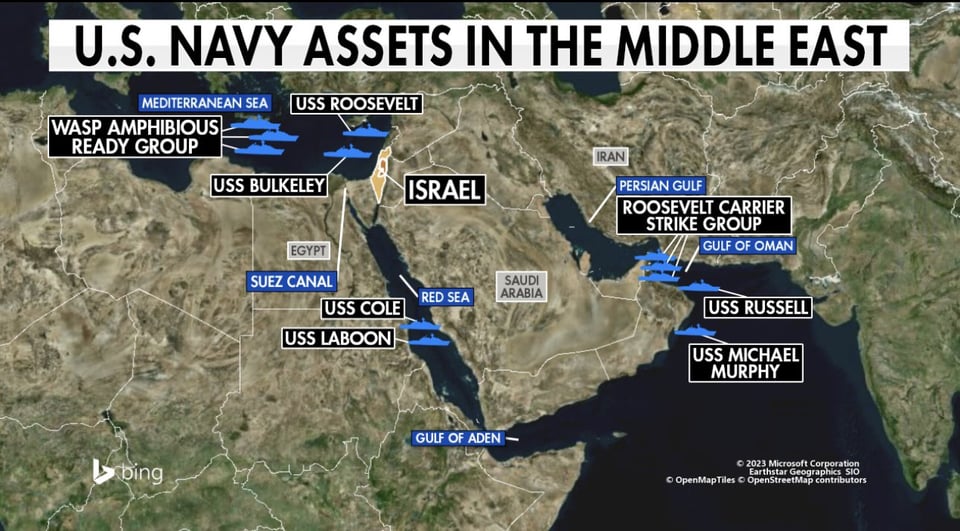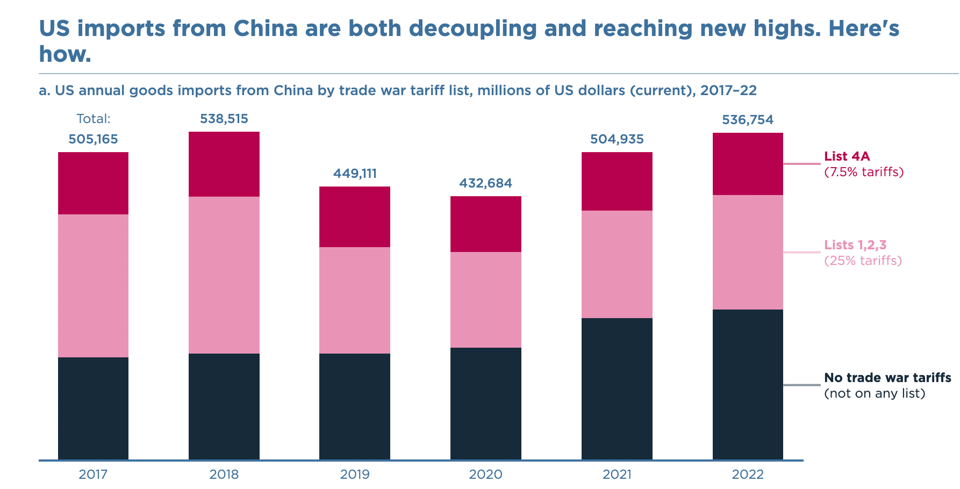Geometry of Fear: Jake Sullivan meets Xi
Hello and welcome to the 16th edition of our weekly-test-dark-mode email. This week: our takeaways on the China-US back channel talks, revealed to have been under way for almost two years. Plus a couple of excerpts on FOCAC and Marshall Plan tributes.
Please email us with feedback (Tim and Kate) and join the Discord.
Both of us will be in NY during Climate Week!
The next Book Club is Andreas Malm’s Fossil Capitalism in mid-October; vote for your time here.
***
The dysfunctional US-China relationship is a major generator of the polycrisis.
Last week, Xi Jinping held a surprise meeting with Jake Sullivan in Beijing. Sullivan, Biden’s national security advisor, has been viewed as the most powerful NSA since Kissinger, and was in Beijing to meet his counterpart Wang Yi. The two have been meeting each other in a “secret back channel” (per the FT) in the neutral zones of this spiralling second cold war — a meeting in Vienna on May 2023, Malta in September 2023, Bangkok in January 2024, and now in Beijing. The goal is for the two superpowers to communicate, preview decisions, and avoid a paranoid miscalculation that could threaten the life and wellbeing of all denizens of our fragile blue green planet.

Back in April 2023, we did not know about the secret back channel that would begin in May, but wrote with alarm in the Polycrisis on the basis of public reporting of dangerous military escalations between the two superpowers: Western-China relations are at their lowest point in decades and spiralling further. US Secretary of State Blinken was forced to cancel his visit to Beijing by the spy balloon fiasco. Cooperationists are pushing back in the US too. Free traders, ex-Generals, ex-Intelligence analysts, civil society groups, scientists, and even Bernie Sanders have all argued for detente. Meanwhile, the G7 will be negotiating their economic security counter measures against China at Hiroshima in May. But what do national security driven “blocs” of globalization look like? If we are lucky, perhaps they look like an improvement on the patchwork that gave us vaccine apartheid. If we are unlucky, it looks like a mushroom cloud.
The task that US elites have set themselves — to reverse decades of technological integration with China without damaging the US economy, or antagonizing allies, or hurting planetary climate stabilization — is difficult.
What are some of our takeaways a year and a half later?
1. We are not in a unipolar or multipolar but a G2 ie bipolar world order: Issues that Wang Yi and Jake Sullivan spanned from the insurgency in Burma, to the drug cartels in Mexico, to AI safety and climate. "The two sides held candid, substantive, and constructive discussions on a range of bilateral, regional, and global issues." No other bilateral relationship spans this range. All world affairs are affected by this great power competition.

2. Choices made in Asian capitals, for perhaps the first time, now decisively influence a European war of attrition. Asia’s productive economic capacity now dictates the number of shells that two European armies - the Ukrainian and the Russian - drop on each other. The Ukraine war, in NATO head Jens Stoltenberg’s words, has become a “battle for ammunition”. The Russians rely on North Korean stockpile of ammunition and Chinese supply chains, while the Ukrainians are recently being delivered munitions from South Korea as the European and American productive supply chains cannot expand fast enough. In Beijing, Jake Sullivan “emphasized concerns about the PRC’s support for Russia’s defense industrial base and its impact on European and transatlantic security”. The dilemma for Sullivan is sharpening because in a future Harris or Trump presidency this choice between defending Europe and defending Asia is increasingly being posed to the American electorate.
3. October 7th 2022, the day the US launched a Chips War ie an economic war against China, is a day that will live in infamy for the Chinese leadership, in perhaps a more long-lasting way than October 7th 2023 when Hamas launched an attack on Israel. In Parliament in early 2023, Xi had strong words of a nature that no Chinese leader has said in the four decades since the US-China detente in 1970s. "Western countries led by the U.S. have implemented comprehensive containment, encirclement and suppression against us, bringing unprecedented severe challenges to our country's development”.
The Chinese view of Jake Sullivan’s chips sanction policy is that it is inherently escalatory for three reasons:
a. it can expand from chips to other technology
b. economic problems of rebalancing in China are seen in the US as national security problems
c. political pressures within the US make sanctions a one-way ratchet that future administrations cannot easily reverse.
However, October 7th 2023 and the continuation of Israel’s genocide in Gaza, together with the increasing risk of regional war in the Middle East, has forced a dramatic failure of the US to “Pivot to Asia”. The amount of naval firepower that the US has now assembled in the Middle East to deter Iran from attacking Israel has forced it to leave the Pacific unprotected. That in turn suggests that there has been some high level US-China understanding that China won’t exacerbate things in Pacific.


4.Schrodingers decoupling: US imports from China are both decoupling AND reaching new highs. We wrote about the resilience of China in the economic war last year. The value of imports not under trade war tariffs has grown so much that they outweigh the decline in imports from China of products hit by the trade war tariffs. Secondly, while US has diversified away from China, it has sought goods from Mexico and EU, who in turn have deepened their trade relationship with China.

5. Climate now serves as a genuine floor to the US-China relationship. After Wang Yi and Jake Sullivan’s secret back channel resumption of diplomacy in 2022-2023, Biden and Xi in their Woodside statement from California in December 2023 “underscored the importance of working together to accelerate efforts to tackle the climate crisis in this critical decade. They welcomed recent positive discussions between their respective special envoys for climate, including on national actions to reduce emissions in the 2020s, on common approaches toward a successful COP 28, and on operationalizing the Working Group on Enhancing Climate Action in the 2020s to accelerate concrete climate actions”
***
FOCAC vibes vs cash
The big headline from the FOCAC summit in Beijing was Xi’s announcement at the end of $50billion for African countries. But like most announcements of big numbers by China or Western countries, it’s less impressive when the nature and timing of the finance are broken down. Two key good points in this early take from China Global South Project:
1/ The $50 billion isn’t all that:
Eric Olander writes:
$29 billion will be allocated for "credit lines." That's all we know. Most likely, those funds will be directed to benefit Chinese firms more than African stakeholders. Additionally, $10 billion will be in "investment" — again, a very vague term that really shouldn't count as part of a government financial pledge, given that a lot of that investment in Africa will be made by Chinese private enterprises, particularly in the mining sector.
And then there's $11 billion of "assistance," most likely various forms of foreign aid. But spread over three years; this isn't very much for a country as large as China and significantly less than the $8 billion of humanitarian assistance the U.S. commits to Africa annually.
2/ The South-South solidarity vibes are excellent:
The reality of the quantum and modality of the finance might be somewhat overlooked when China’s messaging is so good. His colleague Cobus van Staden pointed out that “modernization” was frequently mentioned in Xi’s FOCAC speech:
“More than in previous speeches, Xi explicitly linked Western development to its blood-soaked legacy in the Global South and framed Global South-driven development as a process of righting the historical wrongs of Western development:
“The process of modernization in the West had brought deep suffering to the vast number of developing countries. After the end of the Second World War, Third World countries, represented by China and Africa, have successively achieved independence and development, and have continued to rectify the historical injustices in the process of modernization.”
[...]
“This framing of Western modernity itself as a crime in one of the most prominent Global South forums in the world, especially as those claims to universal values are shredded by the events in Gaza a little more every day, is notable.”
Alan Beattie’s 3 reasons that there cannot be a new (US) Marshall Plan:
US is no longer the lead on the tech that matters
While other countries like Türkiye, Brazil etc might be sharing US/European rancour at China’s dumping, it’s more about products like steel. They are less bothered about cheap Chinese solar and EVs. So Deese’s proposed alliance strategy doesn’t quite add up.
The US has less political alignment & stability on internationalism as during the post WWII era
Stay tuned for our analysis / critique of the competing Marshall plan ideas in the next Polycrisis newsletter with Phenomenal World.
Thankyou for reading; please forward to a friend if you think they’d like it! Anyone can sign up here.
Add a comment: